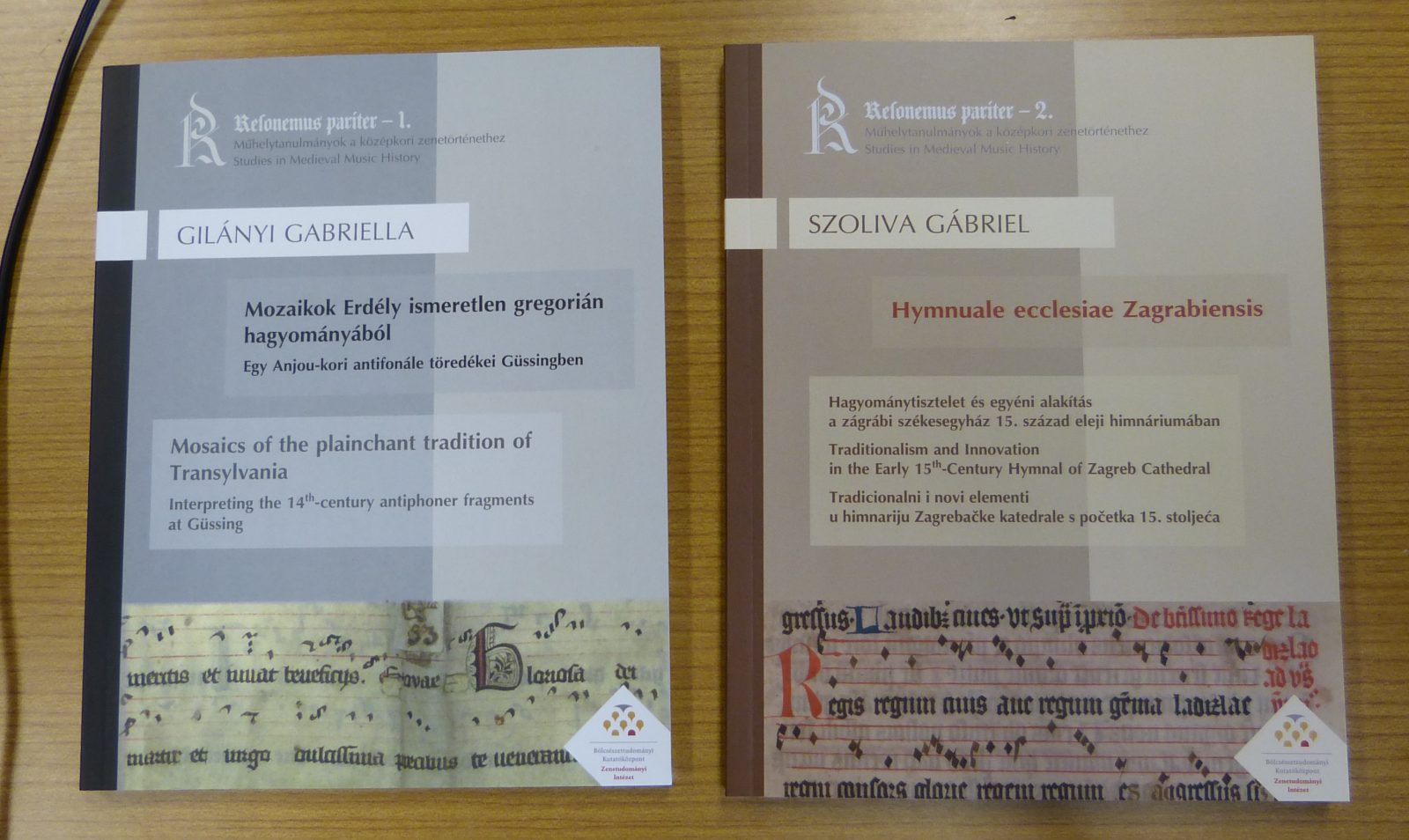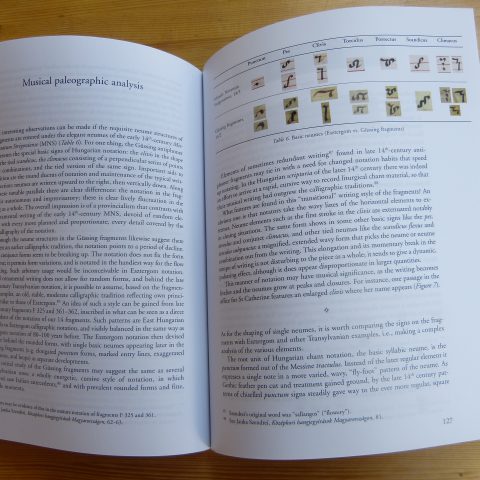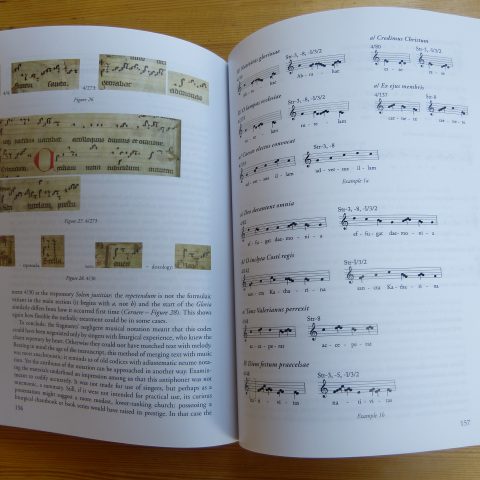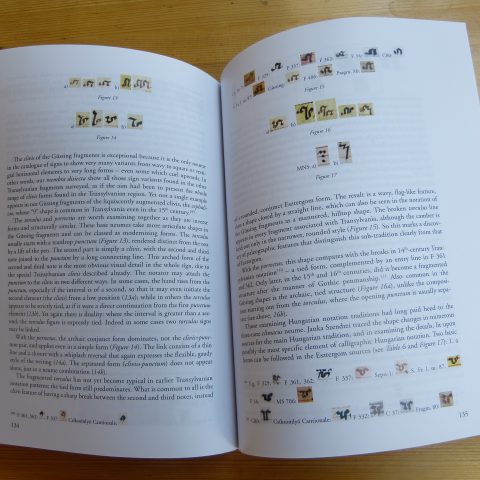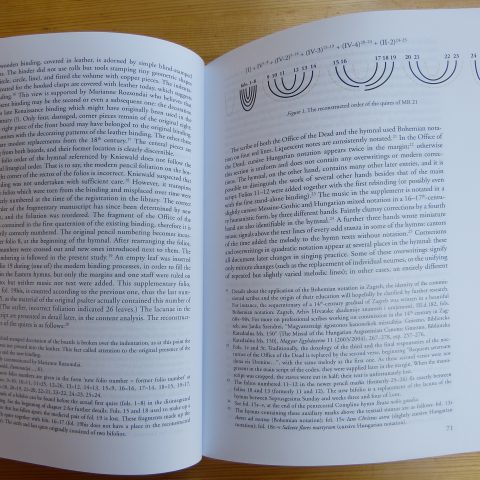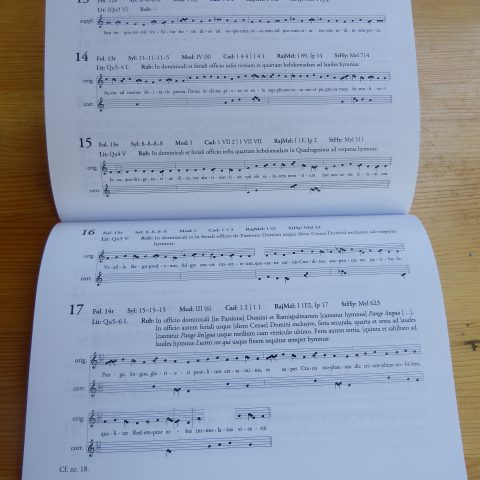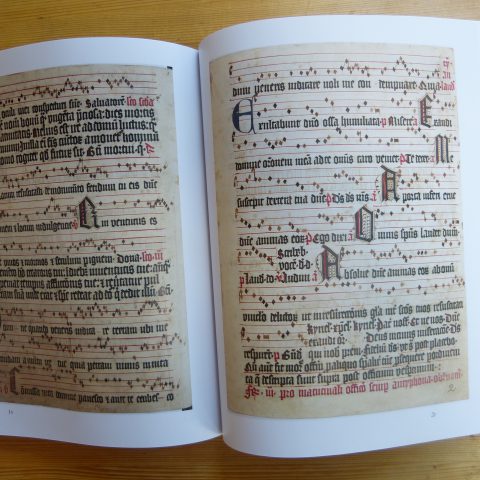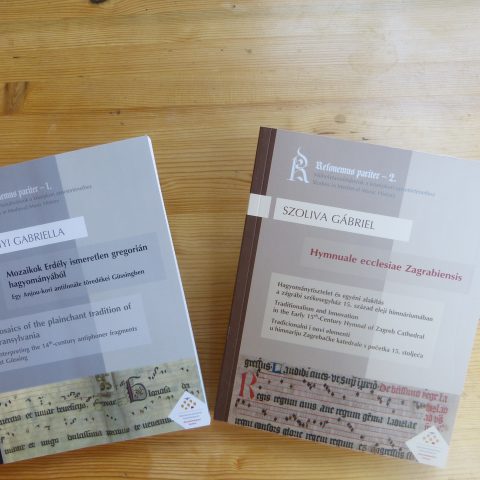A new book series started with the contribution of the Department of Early Music History’s and the HAS Momentum – Digital Music Fragmentology Research Team’s members titled Resonemus partier – Studies in Medieval Music History edited by Zsuzsa Czagány. The bilingual series on the one hand fits into the Institute’s and the Department’s traditionally published “workshop studies”, on the other hand – somewhat altering the conception of those – provides monographic works on a single medieval source or a group of sources in each volume.
In the series’ first volume (Mosaics of the plainchant tradition of Transylvania. Interpreting the 14th-century antiphoner fragments at Güssing) by Gabriella Gilányi fragments of a 14th-century Transylvanian antiphonal are published first in facsimile edition, with the transcription of chants accompanied by a detailed analysis in Hungarian and English. The book was published with the kind permission of the Güssing Franciscan monastery. The editor’s introduction to the issue can be read here.
The second volume by Gábriel Szoliva (Hymnuale Ecclesiae Zagrabiensis. Traditionalism and Innovation in the Early 15th-Century Hymnal of Zagreb Cathedral) presents a hymnal of the Metropolitan Library, Zagreb from the beginning of the 15th-century exhaustively providing the source’s facsimile edition with a commentary and transcription. The study is published in three languages: Hungarian, English and Croatian fulfilling the wishes of the Zagreb Archbishopric. The volume’s editorial introduction can be read here.
Both volumes were founded by the National Research, Development and Innovation Office (project 120 643 Codices and fragments. Research, reinterpretation and online publishing of late medieval musical sources) and the book publishing tender KFB-072/2019 of the Hungarian Academy of Sciences. We are particularly grateful to Ann Buckley, professor of Trinity College, Dublin for the linguistic and academic proofreading of both volumes, also to Jurj Snoj, emeritus research fellow of the Slovenian Academy of Sciences and Arts, Institute for Musicology and Stanislav Tuksar, professor emeritus of the Zagreb Academy of Music for the linguistic and academic proofreading of the second volume’s Croatian translation.
